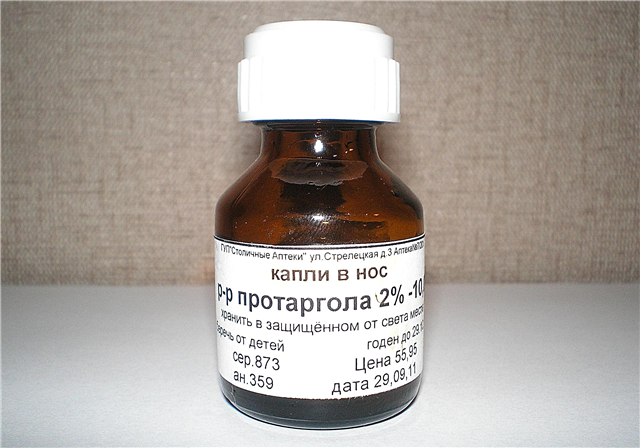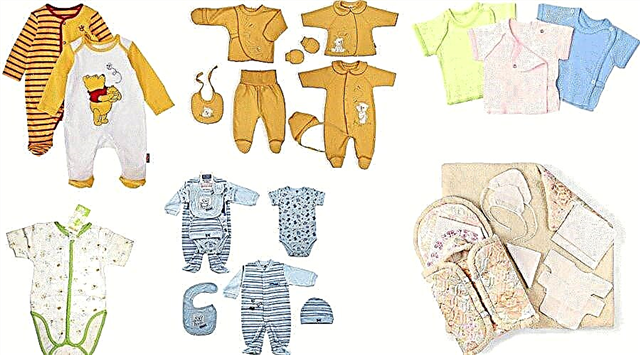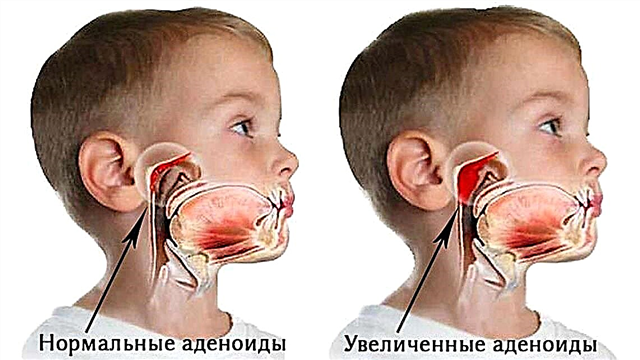Routine check-ups at the clinic and medical procedures such as injections, vaccinations, and dripping into the nose are not the most pleasant events in a child's life. It is not surprising that many children, upon seeing a snow-white robe, cry, scream, and in the doctor's office they arrange a real hysteria. What if the kid is afraid of doctors? How can you help your child overcome this fear? We have selected simple recommendations for you, but proven by moms and psychologists.

Long corridors, many doors leading to mysterious rooms in which strict aunts in white sit, buzzing machines, incomprehensible words exchanged between mom and doctor ... Agree, such an atmosphere does not give a crumb of optimism.
Do not rush to get upset - if you prepare the baby and behave correctly with him in the clinic, you will be able to forget both anxiety and tantrums. But first, let's try to figure out where the legs "grow" from such fear.
Fear of doctors - where does it come from?
Children under the age of one year encounter health workers all the time - monthly examinations, numerous tests and routine vaccinations are a "must-have program." Thanks to the peculiarities of their memory, unpleasant moments are quickly forgotten. Another thing is kids over a year old. Where does this phobia come from?
- Psychologists say that fear of doctors is a completely natural reaction of a little man. By the age of two, most children develop a fear of strangers, especially if their circle of friends was previously limited to household members. It is not surprising that the baby begins to cry if someone else's aunt-doctor touches him.
- Often, children become intimidated by pediatricians and medical procedures after being given an injection or fingertip blood test without warning. Negative experiences are the source of anxiety.
Sometimes parents themselves intimidate their child: “If you are capricious, I will call the doctor with a huge syringe. He will give you an injection against harm. " It is not surprising that after such threats, the kid will start to flinch at the sight of a "villain" who, in his opinion, does not heal, but makes "bo-bo".
- Often adults try to deceive the child by telling them that it won't hurt. Some irresponsible mothers do not explain until the last where they are taking the baby. And when they enter the hospital, they say that they came only for a certificate, taking him to the treatment room in between. After such a "betrayal", children not only get scared of doctors, but also stop believing their mothers.
- The child has not yet formed his own attitude towards other people, so he looks at parental behavior. Does your father speak negatively about dentists? This means that the baby should also bypass the dental offices. Is the mother wary of injections? Hence, he also needs to be wary.
- Unfortunately, not every pediatrician is concerned about the mood with which the child leaves his office. And not every nurse soothes a baby before giving an injection. Therefore, even the most harmless manipulations sometimes end in stress for children.
Recommendations of child psychologists
So, the reasons have been identified, now it remains to find out what to do if your little one is afraid of doctors. According to experts, the choice of "medicine" depends on the age of the young patient.
If the baby is 1 year old: preventing fears
One-year-old children are usually not afraid of medical examinations, but they are sensitive to any physical inconvenience: unfamiliar surroundings, bustle and noise, the loud voice of a stranger, pain. How to relieve psychological stress and prevent the appearance of a phobia?
- Don't lose your composure
Thanks to a strong emotional connection, the baby perfectly understands the mother's state, and any nervousness is transmitted to him instantly. Keep calm, do not infect him with negative experiences, and if the excitement cannot be avoided, ask to take your grandmother or father to the clinic.
- Plan your visit
You must follow your normal daily routine. Children who are hungry or sleepy are less likely to be delighted with a physical examination. Also, do not try to go through all the specialists at once, otherwise the baby will get tired and capricious.
- Let your baby get used to the room
Try to come to the hospital early, take a walk along the corridor, avoiding crying peers. Find something fun (bright posters, potted flowers) and the time in the queue will fly by.
- Take your time with treatment
Entering the office, introduce the child to the pediatrician: “Look, this is Aunt Katya. She is very kind and affectionate. You will make friends with her! " Hold the baby in your arms, stroking the back and head - at this age, touching is important. Try to distract him with a rattle if he is about to cry.
- Call a doctor at home
If children categorically do not want to visit the clinic, use the services of a paid doctor. Invite him home, ask him not to wear “scary clothes” before the examination and to play a little with the baby in the nursery.

If children are 2 years old: reduce nervousness
Older children need to be explained why they visit the doctor. If your child develops a positive attitude towards healthcare professionals, he will not be afraid of hospitals.
- Be honest with your kids
You can not deceive the baby - tell only the truth, because it is not the pain itself that scares him, but what he does not know. For example, do not claim that the doctor will only listen if the vaccine is actually to come. Otherwise, next time the child will refuse to leave the apartment, even if you just need to take a certificate.
- Take a toy
Try to distract from unpleasant thoughts by buying your baby a new exciting toy or book. You can move away from strict rules for a while and allow you to play with your tablet or mobile phone.
- Don't compare with others
In the line in front of the office door, the following phrase often sounds: "Look, that boy is brave, he sits quietly and does not dishonor his mother." The baby may think that he is bad and not worthy of mother's love. To calm the cowardly, share: “When you were a little younger, you were not at all afraid of vaccinations. Even my aunt nurse said that you are very brave. "
- Don't expect good behavior
Don't ask your kid to follow etiquette - to greet the doctor and behave "like an adult." Let him look around in the office, get used to a stranger. If the child gets scared and cries, you can't swear and slap on the bottom. Hug and try to calm the roaring child.
If the child is 3 years old: getting rid of fears
Unfortunately, it also happens that, despite all the measures taken, three-year-old children still tremble at the sight of a medical uniform. What to do in such cases?
- Explain what medical procedures are for
It is necessary to tell what awaits the child in the office, for which one or another medical manipulation is necessary. For example: “Vaccination will help you not to get sick. A blood test will tell the doctor why you are sick. The dentist will relieve you of toothache and make your teeth healthy. " Your explanation will help the children be more tolerant of treatment.
- Give a baby first aid kit

Buy a toy set with medical supplies such as syringes, stethoscopes, and heating pads. Take a doll and a teddy bear for the role of patients, who need to feel their tummies, examine their throats, and take blood for tests. As the game progresses, suggest how to perform the various procedures, and together enjoy the "recovered" toys.
- Use fairy tale therapy
Before visiting the hospital, watch cartoons about the doctor, medications: "About the hippopotamus, who was afraid of vaccinations", "Bird Tari". Young children especially love the tale of the kind Aibolit, which helps sick animals. Be sure to answer all your questions.
- Promise a reward for courage
Typically, psychologists strongly oppose the idea that parents try to get their children to behave they want by means of "bribery". The only exceptions are visits to doctors. The kid should be sure that his courage will be rewarded - not necessarily with a toy or candy, but, for example, by going to an amusement park.
- Let me cry
A strict taboo on tears can backfire. Let the child cry, it will be a good emotional release. Tell them that you perfectly understand his fear, but you need to be patient a little. Never be ashamed of fear and anxiety - phrases like “men don't cry”, “you're already big” should be excluded.
The child is afraid of the dentist - what to do?
Sometimes children are wary of a particular doctor - most often the dentist. In this case, it is difficult to speak not only about the treatment of sick teeth, but also about preventive observation. How to make friends with a baby dentist?
[sc: rsa]
- Choose a doctor according to the recommendation - ask your friends and acquaintances in which specialized children's clinic they treat children.
- Come to your first appointment as a guided tour. Ask the doctor to show the baby his office, tools, and allow him to sit in the chair.
- You should not focus on unpleasant sensations when going to the dentist with your child. And at the same time, you cannot say that the dentist will not do anything at all - this is not true.
- Do not try to cure several teeth in one visit - the baby will not stand in the dental chair for more than 15 minutes and will be capricious.
- Tell that you will always be with your child and will definitely come to his aid if necessary.
- Everything you need to know about the first trip to the clinic with a newborn
- Child and dentist: how to set up a child and successfully heal a tooth
- How to teach a child not to be afraid to donate blood
- Visit the pediatrician: 7 important rules
- 12 effective ways to teach your child to brush their teeth
- What to play with a child in the clinic when it's turn
Tips from experienced parents
Each mom is her own psychologist, so we decided to find out what those parents were doing, in whose families little panties grow up, who categorically refuse to contact a pediatrician.
Evgenia, mother of two-year-old Danila: “The following helped my son in exactly the same situation. We changed the local doctor to a paid one and brought not a child for examination, but a beloved teddy bear. The doctor quickly understood what was the matter, carefully “treated” the bear, and only then proceeded to Danka. Since then, with sincere joy we go to the kind aunt to heal ... the bear. "
Elizaveta, mother of 4-year-old Katya: “We have this problem with age has become less acute. We often read about Aibolit, bought my daughter a doctor's kit (injections, tubes, thermometers). At the reception, I try not to worry and calmly talk to the doctor. And when we are going to the clinic, I will definitely say what they will do there and that it will practically not hurt. "
Anna, mother of three-year-old Diana: “We had a similar situation ... My daughter just screamed when she saw a man in a white coat. But one day they came to the dentist, who was able to make friends with her, and Diana did not cry at all. And at home she even asked: "When are we still going to pull out teeth?" You can meet such wonderful doctors! "
We hope that the simple recommendations of specialists and parents will definitely help you save your baby from the fear of doctors and turn an unpleasant trip to the clinic into a regular regular event. Be healthy!



